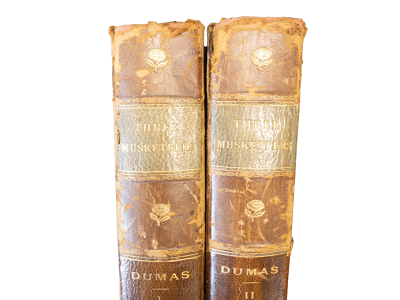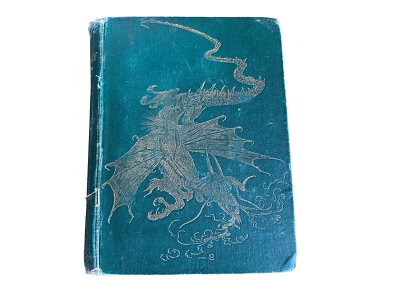
How to do research on old Books
Researching old books can be an exciting and rewarding endeavor, allowing you to delve into the past and uncover valuable information. Here’s a step-by-step guide on how to conduct research on old books:
- Determine your research topic: Define the specific subject or theme you wish to explore within the old books. Having a clear research question or objective will help you focus your efforts and make your search more productive.
- Identify relevant libraries or archives: Find libraries, archives, or special collections that house the old books you’re interested in. Local libraries, university libraries, and national libraries often have extensive collections of historical books. Look for catalogs or online databases provided by these institutions to identify the books that may be relevant to your research.
- Access digital resources: Many libraries and organizations are digitizing their collections, making it easier to access old books online. Check if the books you’re interested in are available in digital format through online platforms such as Google Books, Internet Archive, HathiTrust, or Project Gutenberg. These platforms often provide full-text search capabilities, making it easier to locate specific information within the books.
- Visit the library or archive: If the books you need are not available digitally, plan a visit to the library or archive where they are housed. Contact the institution beforehand to inquire about their access policies, opening hours, and any specific requirements for accessing rare or fragile materials.
- Consult catalogs and finding aids: Once at the library or archive, consult their catalogs and finding aids to locate the old books relevant to your research. These resources provide information about the library’s holdings and can guide you to specific books, manuscripts, or collections. Librarians and archivists can also assist you in navigating these resources effectively.
- Examine the books: Once you’ve identified the books of interest, examine them closely. Pay attention to the title, author, publication date, and any other relevant information. Take note of the book’s physical condition, annotations, and any additional materials (such as maps, illustrations, or inserts) that may be present. These details can provide valuable insights and context for your research.
- Read and take notes: Read the books carefully, taking notes on relevant information, passages, or quotes that support your research. Record bibliographic details such as page numbers, chapter titles, and any other information necessary for proper citation. If allowed, you can also use a camera or a scanner to make digital copies of specific pages or sections for future reference.
- Consult secondary sources: While conducting research on old books, it’s helpful to consult secondary sources such as scholarly articles, books, or online databases that discuss the same or related topics. These sources can provide additional context, interpretations, or references to other relevant materials.
- Analyze and synthesize your findings: After gathering information from the old books and secondary sources, analyze and synthesize your findings. Identify key themes, connections, or arguments that emerge from your research. Consider how the information from the old books contributes to your understanding of the topic and how it aligns or differs from existing scholarship.
- Document your sources: It’s crucial to properly document the sources you consulted during your research. Maintain a bibliography or reference list that includes all the old books, secondary sources, and digital resources you used. Use the appropriate citation style (such as MLA, APA, or Chicago) to ensure accurate and consistent referencing.

Remember that researching old books requires patience, attention to detail, and critical thinking. Embrace the journey of exploring the past through these valuable literary artifacts.
When is book is considered rare
A book is considered rare when it possesses certain characteristics that make it uncommon and sought after by collectors, scholars, or enthusiasts. The rarity of a book can be determined by several factors, including:
- Age: Older books, particularly those dating back several centuries, are generally more likely to be considered rare due to natural attrition over time.
- Limited edition: Books that were published in limited quantities or as special editions, such as first editions, signed copies, or books with unique features (e.g., illustrations, bindings), tend to be rarer than mass-produced editions.
- Scarcity: If a book had a low initial print run, was published in a specific location, or is associated with a niche or obscure subject matter, it may be harder to find, increasing its rarity.
- Historical or cultural significance: Books that played a significant role in history, contain important scientific discoveries, or are linked to influential individuals can be considered rare due to their unique value and impact.
- Condition: Books in exceptional condition, with minimal wear, intact bindings, and original dust jackets, are highly sought after. Well-preserved copies are rarer than those with damage or missing parts.
- Demand and desirability: A book’s rarity can also be influenced by its popularity among collectors and researchers. If a book is highly sought after or considered a seminal work within a specific field, it may be classified as rare.
It’s important to note that rarity is a relative term and can vary depending on the specific context, market, and community of collectors. What is considered rare in one domain may not be as rare in another. Additionally, the determination of rarity can be subjective and subject to interpretation.
If you possess a book you believe might be rare, it can be helpful to consult with experts, appraisers, or book dealers specializing in rare books. They can assess its rarity, condition, and market value based on their expertise and knowledge of the book market.
Leave a Reply